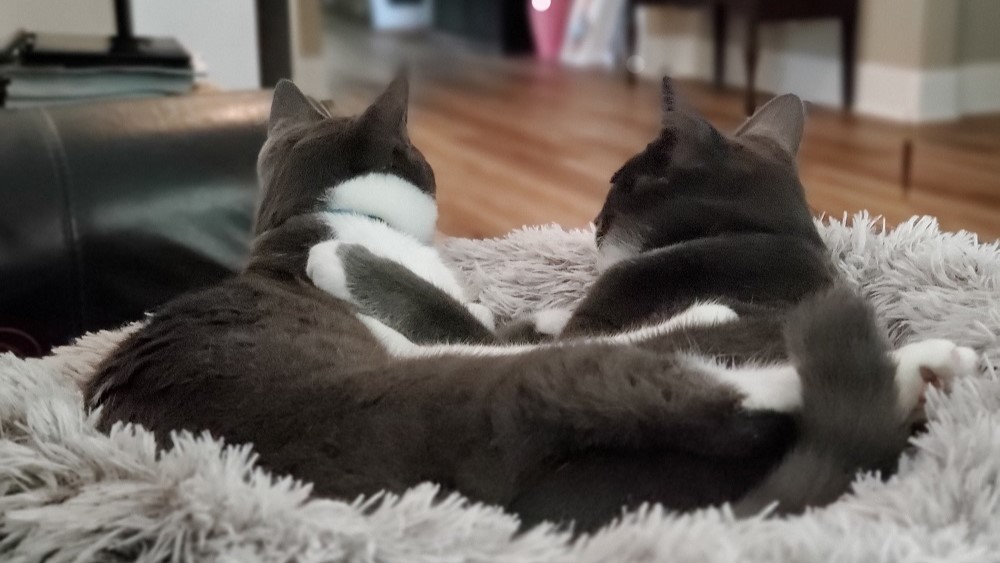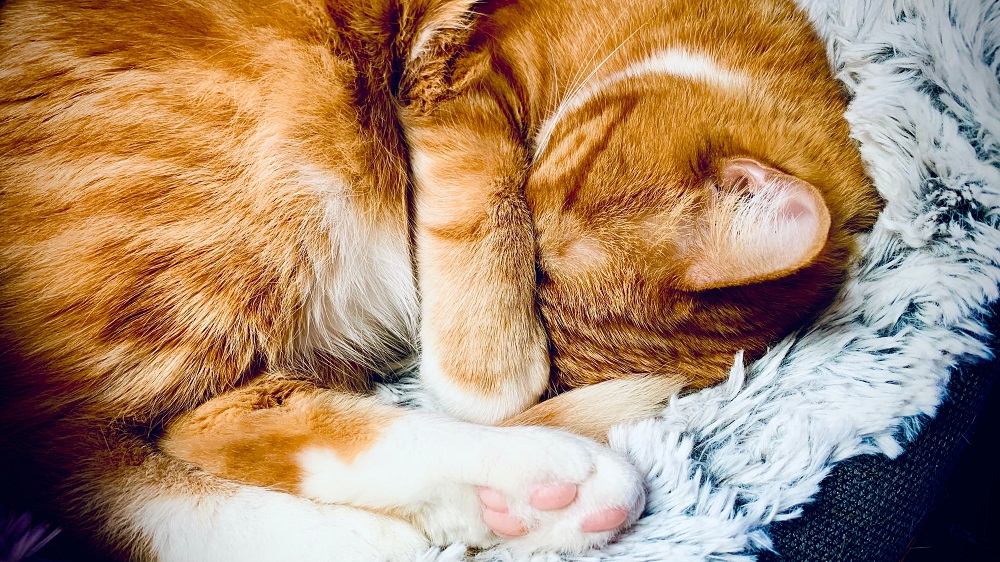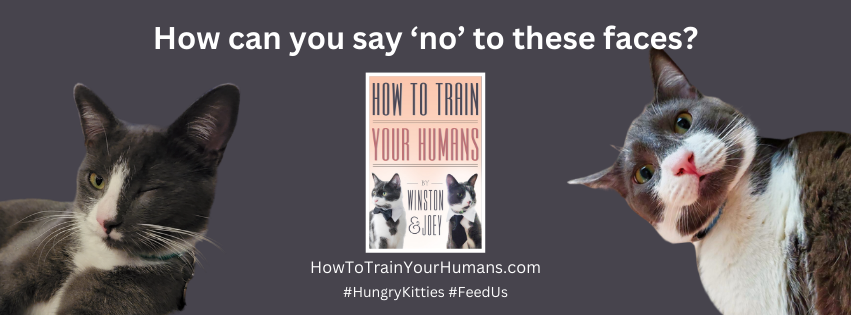When the temperature drops and the sun disappears at 4:00 p.m., most of us want to curl up in a blanket and eat carbs like it’s our job. Your cat is right there with you. If they seem lazier than usual, sleeping more, and demanding second breakfast every day, it’s not just in your head. Winter can change your cat’s habits in surprising ways.
So what’s really going on when your usually playful kitty becomes a loaf with whiskers during the colder months?
Your Cat’s Inner Wildcat Still Thinks It Lives Outdoors
Even though your pampered indoor cat has never hunted anything more challenging than a feather wand, their instincts are still wired for survival.
In the wild, seasonal changes in daylight and temperature trigger biological responses. Wildcats and outdoor cats often eat more in fall and winter to build fat reserves for the colder months. They also tend to sleep more to conserve energy when food is scarcer and the weather is less inviting.
Your indoor cat may have a cozy bed and endless kibble, but their body still responds to seasonal cues, especially shorter daylight hours. This can lead to a natural increase in both appetite and sleeping time during the winter.
Yes, Your Cat Might Be Eating More in Winter
If your cat is suddenly inhaling food like they’re bulking for a feline bodybuilding competition, there’s science to back it up.
Research shows that cats often consume more calories in colder months, even if their environment is temperature-controlled. One study found that domestic cats ate roughly 15 percent more food during winter than they did during the summer.
Why? It comes down to daylight and energy use. Cats burn more energy staying warm and active when the days are short. Their body responds by demanding more fuel. Even indoor cats, who aren’t exposed to the elements, can be affected by the reduced sunlight, which alters their circadian rhythms and metabolism.
It’s a good idea to monitor their food intake and body condition during winter. A little extra fluff is fine, but sudden weight gain can lead to health problems.
Winter Also Means More Naps (Even for Champion Nappers)
Let’s be honest, cats are professional sleepers year-round. But in winter, their sleep sessions can stretch out even longer.
Cats naturally adjust their sleep patterns to align with the amount of daylight they get. Less sunlight means more sleep. Combine that with colder temps and fewer hours of activity, and you’ve got yourself a fuzzy hibernation situation.
Some cats also become less playful in winter, especially if you’re not interacting with them as much. Shorter walks (for leash-trained cats), fewer open windows, and less stimulation can all contribute to winter sluggishness.
How to Keep Your Cat Healthy and Happy All Winter
While it’s completely normal for cats to sleep more and snack more during winter, it’s still important to make sure they’re staying active and mentally engaged.
Here’s how to help your cat beat the winter blahs:
- Stick to a consistent feeding schedule and avoid overfeeding, even if they act like they’re starving
- Make playtime part of their daily routine with toys that encourage movement and mental stimulation
- Create cozy napping spots near sunny windows to support their natural rhythms
- Rotate their toys regularly to keep things fresh and exciting
- Use puzzle feeders or treat balls to make meals more enriching
If your cat seems especially lethargic, gains weight quickly, or shows any changes in mood or behavior, check in with your vet to rule out underlying health issues.
Should You Worry About Seasonal Affective Disorder in Cats?
There’s no official diagnosis of Seasonal Affective Disorder (SAD) in cats, but some pet owners swear their feline friend gets a little gloomy when the sun takes its winter vacation.
While there’s limited research, some vets believe cats can be affected by reduced sunlight, especially if they’re used to basking in sunny spots. If your cat seems unusually withdrawn, less affectionate, or uninterested in things they usually enjoy, try giving them more interaction and playtime, or speak to your vet for advice.
Light therapy boxes (the kind used for humans with SAD) may also help, but only under veterinary guidance. Never shine bright lights directly into your cat’s eyes.

Winter’s here again! Time to amp up our ‘eat-sleep-repeat’ routine. It’s like our personal hibernation, but with more snacks. It’s all about balance – balance the food bowl on one side, and the nap time on the other. #SnackAndSnooze #EatSleepPurrRepeat #SnuggleSeason
Winston & Joey
When Winter Habits Go Too Far
A bit of extra snoozing and snacking is totally normal. But watch for signs that your cat’s winter routine might be turning into a health issue:
- Sudden weight gain or loss
- Refusing to eat or over-gorging
- Sleeping to the point of ignoring stimulation
- Lack of grooming or changes in coat condition
These symptoms could signal a medical problem unrelated to the season, so always err on the side of caution and call your vet if you notice something off.
Final Thoughts
When winter hits, your cat’s natural instincts shift into cozy survival mode. More eating, more sleeping, and less activity are all perfectly normal responses to shorter days and colder weather. But it’s still important to balance their comfort with healthy routines.
Help your cat stay happy this winter by offering warmth, mental stimulation, and just enough snacks to keep things festive, but not fluffy.
Cats may not hibernate, but that doesn’t mean they won’t act like tiny, snuggly bears until spring rolls back around.
Sources:
– Seasonal Changes in Domestic Cat Food Intake | Royal Canin https://vetfocus.royalcanin.com/en/scientific-updates/seasonal-variation-in-food-intake
– Why Do Cats Sleep So Much in the Winter? | PetMD https://www.petmd.com/cat/seasonal/why-do-cats-sleep-more-in-winter
– How Cold Weather Affects Cats | VCA Hospitals https://vcahospitals.com/know-your-pet/how-cold-weather-affects-cats
– Winter Weight Gain in Pets | American Veterinary Medical Association https://www.avma.org/news/press-releases/avoid-winter-weight-gain-pets-keeping-them-active-during-cold-months
Recent Posts
Explore why cats sleep so much, including the evolutionary reasons and the health benefits they derive from their extensive sleep patterns.
Explore the causes of cat dandruff, its implications, and effective ways to deal with it so your feline friend remains happy and healthy.


